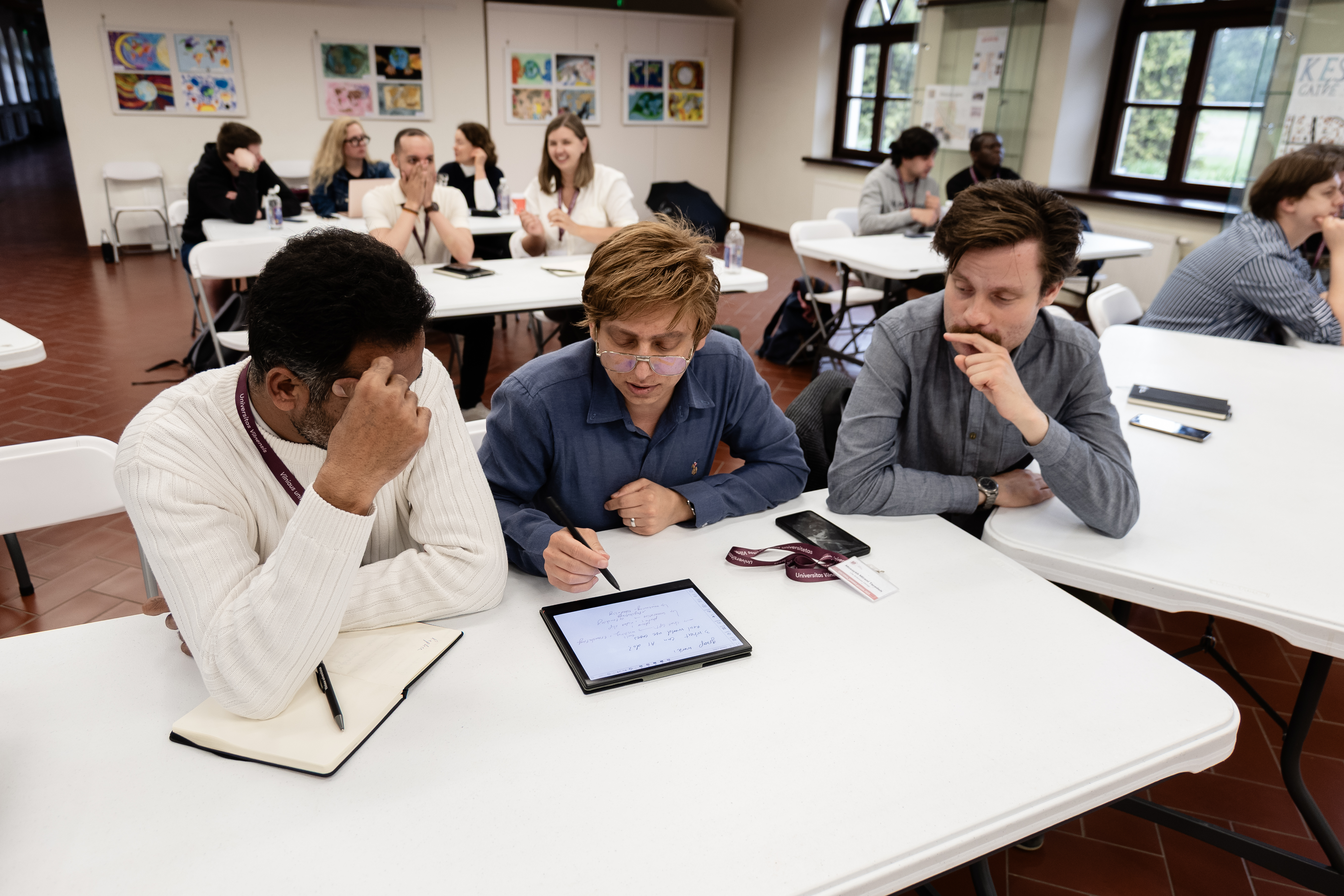The Results of the Arqus Research Initiative Have Been Published

The Arqus Alliance is proud to share the results of its internal Research Initiative, designed to foster long-term, collaborative research activities among its member universities. This self-funded pilot call marks an important milestone in strengthening the research dimension of the Alliance, particularly by encouraging the active participation of early-career researchers.
Open to all academic disciplines and welcoming the involvement of associate partners and external organisations, the call invited proposals aligned with Arqus’ three key research priorities:
- Climate Change and Environmental Sustainability
- Artificial Intelligence and Digital Transformation
- European Identity and Heritage
The Initiative aims to support projects involving a minimum of three institutions within the Alliance, to be implemented over 18 months, starting from July 2025. Activities supported include collaborative research projects, PhD workshops, short-term mobility, and the formation of research teams for future joint proposals.
The response to the call was overwhelmingly positive, with 61 proposals submitted from across the Alliance. This enthusiastic participation highlights not only the research potential within the network but also the strong interest in building cross-institutional collaborations. While many proposals demonstrated excellent quality and high potential, limited available resources meant that only a small number could be funded under this initial scheme.
Following a thorough evaluation process, a total of €99,600 has been awarded to four selected projects spanning a diverse range of disciplines, including climate science, neuroscience, plant biology and cultural heritage. All projects involve at least three Arqus partner universities and will contribute to strengthening the foundations for future joint research initiatives and funding applications.
“Improving confidence in future projections of Atlantic circulation”
Lead institution: University of Padua
Partner institutions: Maynooth University, University of Graz
Activities: Development of a research team with a view to e.g preparing joint proposals for external funding or joint publications.
Summary: This project brings together climate scientists, oceanographers, and theoretical physicists from Padua, Maynooth, and Graz to better understand and predict changes in the Atlantic Meridional Overturning Circulation (AMOC), a key component of global climate regulation. It aims to reduce uncertainty in climate model projections by integrating observational data, machine learning, and theoretical frameworks. Activities include workshops and research coordination toward larger future proposals.
Score: 94.99
“BrainStimPredict: A cross-disciplinary approach to Brain Response Prediction”
Lead institution: University of Padua
Partner institutions: University of Granada, University of Minho
Activities: Small-scale research project, Mobility of small teams, Development of a research team with a view to e.g preparing joint proposals for external funding or joint publications
Summary: BrainStimPredict aims to develop an innovative computational pipeline to predict how the brain responds to stimulation, bridging neuroscience, control theory, and data science. With contributions from Padua, Granada, and Minho, the project will train six early-career researchers through joint research, mobility, and validation of models using high-resolution neuroimaging data. It supports digital transformation and clinical translation in mental health by providing open-source tools for precision therapies.
Score: 89.50
“Assessment of floral organ photosynthesis with novel mutant collections”
Lead institution: Maynooth University
Partner institutions: University of Lyon 1, University of Padua
Activities: Small-scale research project
Summary: This project investigates the often-overlooked capacity of floral organs to perform photosynthesis and its significance across different plant species. By conducting a comparative physiological analysis, the research aims to uncover how floral photosynthesis contributes to reproductive efficiency and evolutionary adaptation, potentially informing ecological and agricultural strategies. It will strengthen collaboration and train early-career researchers in plant biology and comparative ecology.
Score: 88.50
“The effect of erosion on archaeological sites in the UNESCO Global Geopark Granada”
Lead institution: Leipzig University
Partner institutions: University of Granada, University of Padua
Activities: Small-scale research project, Organisation of a research and/or advanced educational seminar and/or a winter or summer school, Mobility of small teams, Development of a research team with a view to e.g preparing joint proposals for external funding or joint publications
Summary: This project addresses the increasing threat of erosion to archaeological sites by combining geoscience, archaeology, and heritage studies. It seeks to understand erosion processes and their impact on cultural heritage across different regions, ultimately informing better conservation strategies. Activities include field studies, PhD workshops, and interdisciplinary training, helping to protect vulnerable archaeological heritage in a changing climate.
Score: 87.50
All selected and non-selected initiatives will be contacted. For further questions, please send an email to .